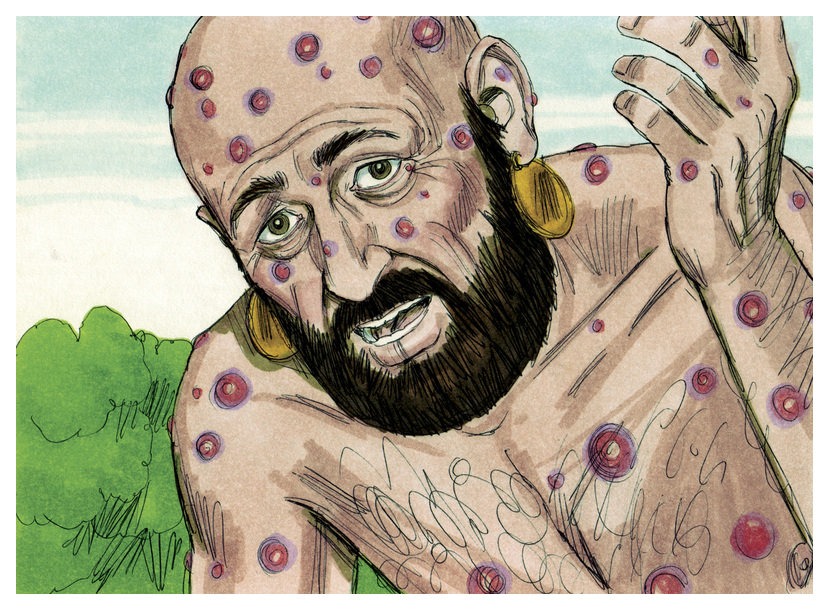
A congregational study of the Book of Job. By Pastor Jose Luis
Session Thirteen. Read Job Chapters 18-19
Bildad´s system of reward and retribution makes no room for Job´s innocence. Bildad´s coldly remarks that Job is the cause of his own torment because he is not accepting the message of his friends. For Bildad, Job has to suffer the fate of the wicked: the complete destruction of his posterity: 17, 13-17
By disease their skin is consumed, the firstborn of Death consumes their limbs. They are torn from the tent in which they trusted and are brought to the king of terrors.
In their tents nothing remains; sulfur is scattered upon their habitations. Their roots dry up beneath, and their branches wither above. Their memory perishes from the earth, and they have no name in the street.
Job answers that the words of Bildad and his friends are not a message of peace and consolation, but only a torment 19, 1. Job argues that his friends are contemplating him from a position of power and false moral superiority, they feel that they are better, because they are not experiencing his disgrace 19, 5.
Facing the accusations of his friends, Job declares that his cause is now exclusively in God´s hands. It is God who will be his redeemer. At this story´s climax Job is completely abandoned by friends and family 19, 13-14; 17-19.
If God will not speak now, Job expects God to speak in the future and to redeem his cause, 19, 25-27:
For I know that my Redeemer lives, and that at the last he will stand upon the earth;
and after my skin has been thus destroyed, then in my flesh I shall see God,
whom I shall see on my side, and my eyes shall behold, and not another.
There are moments when justice and redemption look remote, but Job invites us to have faith in a future restauration and resurrection. How does Job´s appeal to trust in the Redeemer give you courage to face the challenges today?
Tell me your impressions. pastor@lcostampa.org